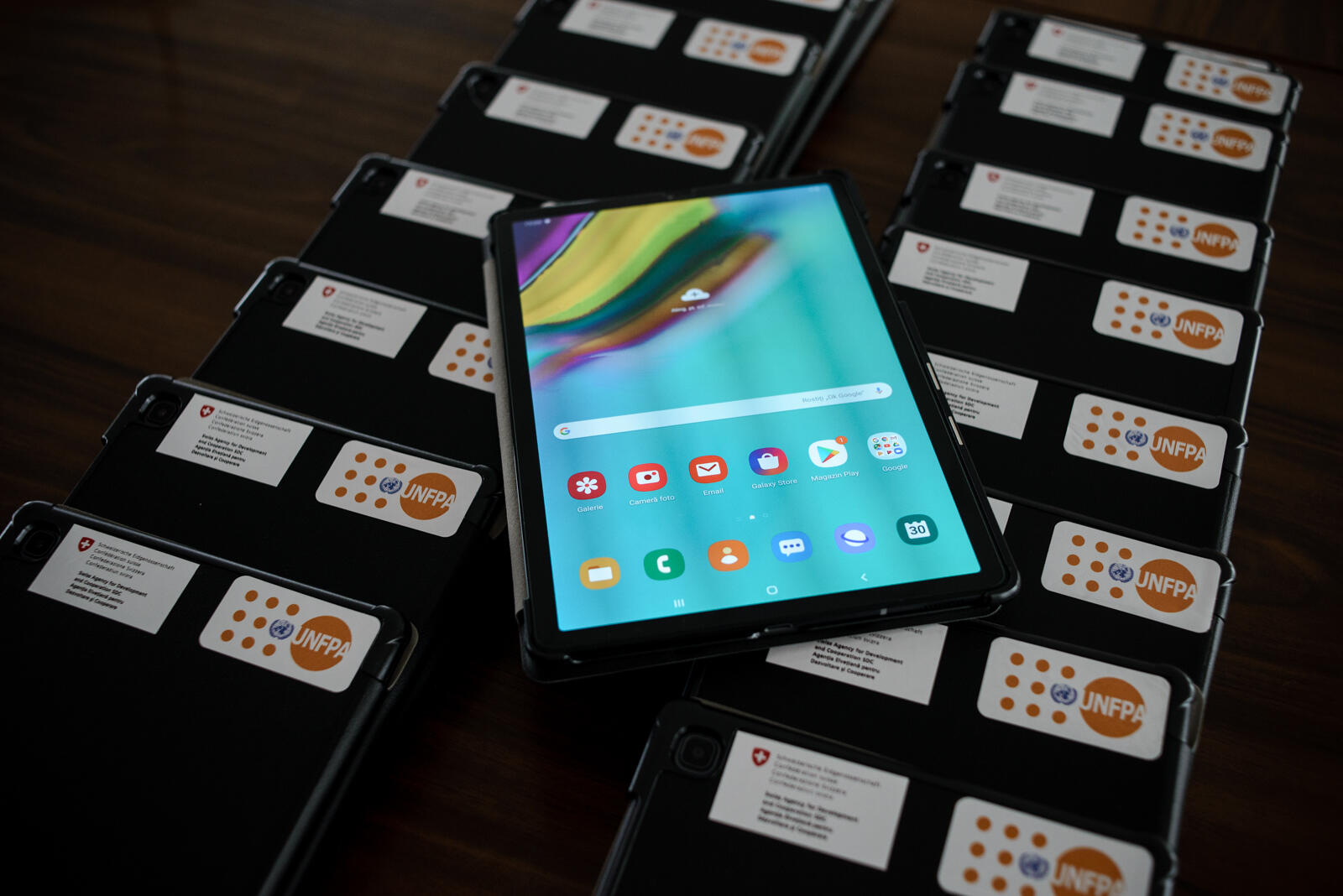The National Bureau of Statistics (NBS) of the Republic of Moldova shifts to the digitalisation of data collected by survey operators. To facilitate this process, the United Nations Population Fund (UNFPA), with the support of the Swiss Cooperation Office, donated to NBS 200 tablets. They will be used including for collecting the data when conducting the censuses or when questioning the households. So far, the survey operators were collecting data on paper and after that they introduced in electronic format.
‘All the modern countries implement new methods of data collection by using new information technology. The use of tablets for this purpose is an important and inevitable step in modernising the data collection and national statistics system’ said Oleg Cara, the Head of the National Bureau of Statistics.
‘We hope that those 200 tablets, provided by UNFPA in collaboration with Switzerland, will support the digitalisation of statistical operations at national and local levels and will increase the accuracy and quality of the data, but also their access speed’, mentioned Nigina Abaszada, UNFPA Resident Representative in Moldova.
‘Good quality statistics are very important for the Republic of Moldova and for any other country. Moreover, we have the 2030 Agenda, which is based on the Sustainable Development Goals, which all the countries like Switzerland and the Republic of Moldova, accepted and signed, and the statistics are also important for the way we progress in monitoring this Agenda’, stated Caroline Tissot, the Director of the Swiss Cooperation Office.
Shifting to collecting the data on tablets will help increase their quality and the security, will reduce the time and the costs. ‘At present, the data are collected on paper and then transcribed by other employees in the computer. This needs time and additional human resources. The digitalisation of this process will allow us to skip this manual stage and to minimize the errors. The confidentiality of personal data will be even more secured because the data introduced in the tabled are automatically transmitted and stored on the NBS server, and the survey operator has no longer access to them. At the same time, thanks to the GPS incorporated in the tablet we can check if the operators conducted the interviews in the indicated settlement. Likewise, they can take pictures and make different recordings’, listed the advantages of the digitalisation of data collection, Laris Bors, Head of Data Collection in Households Section.
The donation is part of a series of activities aimed at improving the institutional capacity of the National Bureau of Statistics, conducted by United Nations Population Fund, with the support of Switzerland. The digitalisation of data collection is part of 2016-2020 Strategy for the Development of the National Statistical System and of Sustainable Development Goals, the achievement of which was assumed by the Republic of Moldova too, which involves the provision of high quality disaggregated data.


